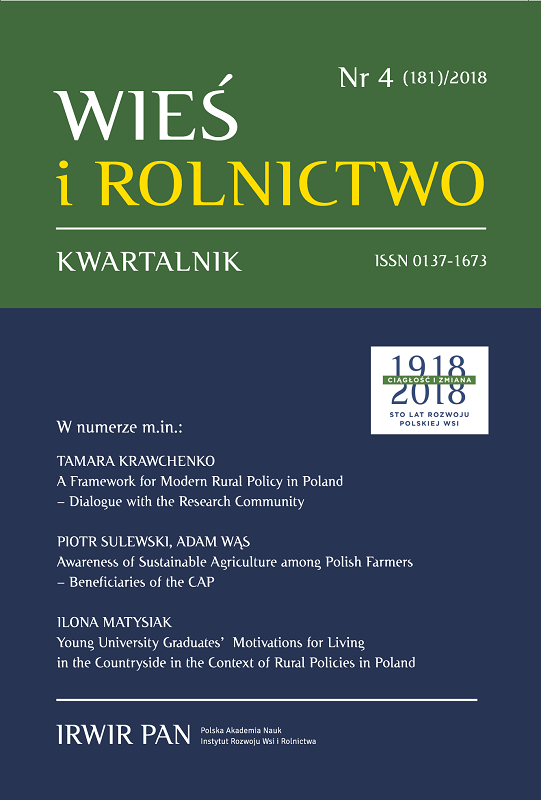Some General Considerations on Coordination Mechanisms and their Potential Role in Rural Policy
Some General Considerations on Coordination Mechanisms and their Potential Role in Rural Policy
Author(s): Michał PietrzakSubject(s): Politics, Agriculture, Sociology, EU-Legislation
Published by: Instytut Rozwoju Wsi i Rolnictwa Polskiej Akademii Nauk
Keywords: coordination mechanisms; governmental policy; political transaction costs; rural policy
Summary/Abstract: The objective of this paper is to discuss, from the theoretical point of view(transaction costs economics and system approach), the limitations of the governmental po -licy and rural policy in particular – which aims to intervene into coordination of transactionsbetween economic agents. The conceptual framework of the paper is based on the distinctionbetween three ideal types of coordination’s mechanisms (namely: competition, hierarchicalcontrol, values/norms and vertical liaisons) and real institutional arrangements, whichcould base only on one of ideal type or be a mixture of them. Rural policy is dedicated tosolving the problem, which could not be solved solely by a market. However, governmentalintervention suffer from failures of its own. This is a true particularly in the case of uniformlyapplied, extended top-down policy based mainly on hierarchical control. In such a case,market failures could be mitigated (and therefore market transaction costs), but, on the otherhand, the political transaction cost (variable and fixed as well as) could be tremendous. Themain conclusion of the paper is that one could expect that the minimum of both categoriesof transaction costs (market and political) will be probably achieved in the case of ruralpolicy, which is composite of different coordination’s mechanism, not solely hierarchicalcontrol. This conclusion is in line with the shift to the new paradigm (Rural Policy 3.0)recommended by OECD, which generally is based on stronger decentralization, improvedmulti-level governance and involvement of non-government as well as private organizations.
Journal: Wieś i Rolnictwo
- Issue Year: 181/2018
- Issue No: 4
- Page Range: 131-148
- Page Count: 18
- Language: English

